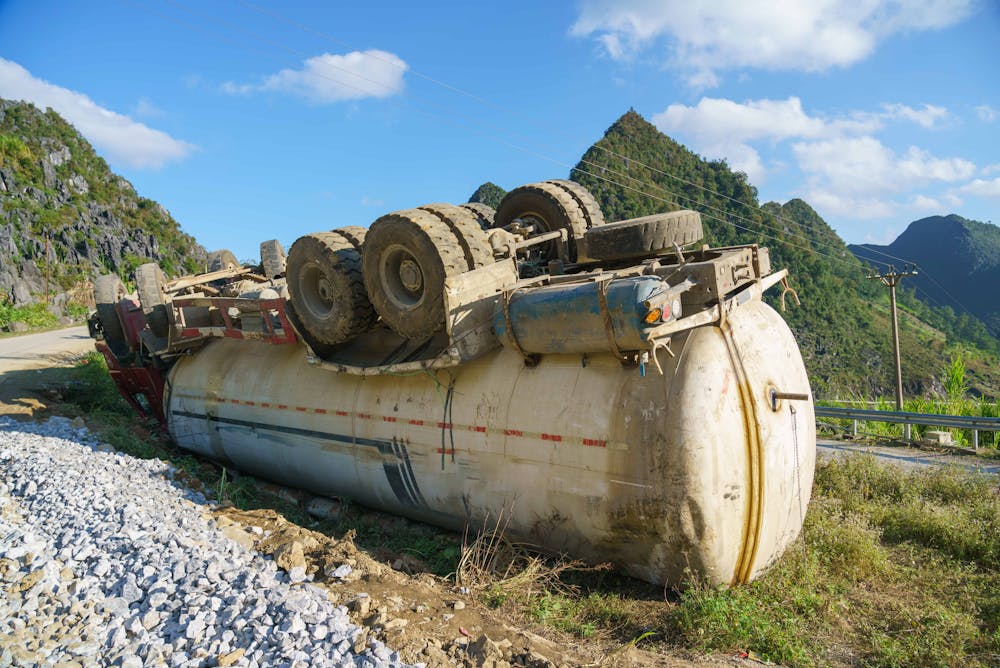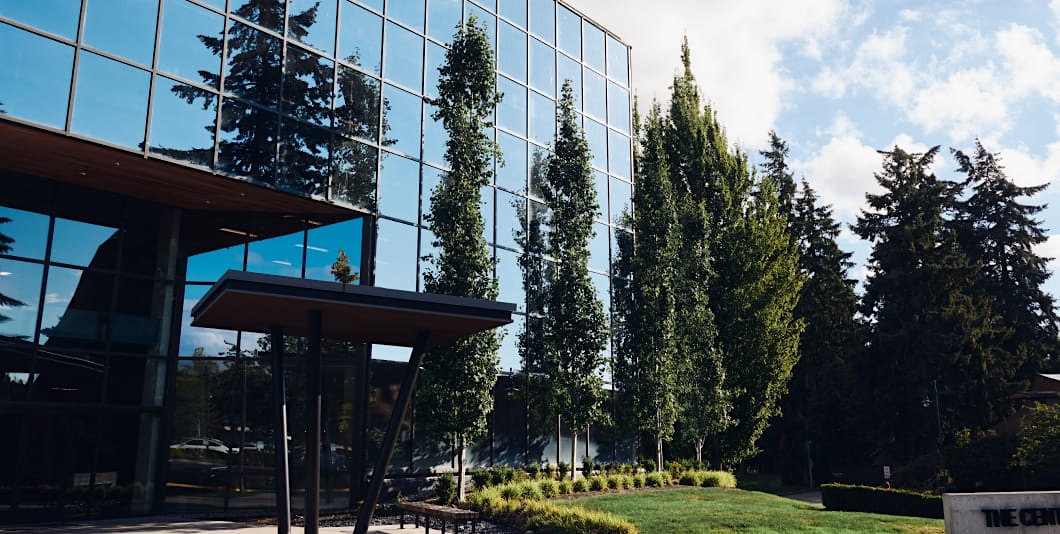
If you suffered injuries or property damage in a truck accident caused by someone else, you shouldn’t bear the financial consequences of the crash. You might wonder who you can hold liable for your injuries and other losses from the accident. Depending on the circumstances of a truck crash, various parties may bear responsibility for your harm and loss.
Identifying those liable for a truck accident often requires thoroughly examining the evidence and a solid understanding of the law. An experienced truck accident attorney in Federal Way can help you by investigating the accident to determine who you can hold accountable for your injuries and losses.
Types of Truck Accidents
Various types of truck accidents involving commercial vehicles can happen.
Some of the most common types of truck accidents include:

- Sideswipe collisions: Sideswipes occur when a truck bumps or scrapes along the side of another vehicle. A sideswipe collision may happen when a truck driver fails to signal or check their mirrors before changing into a lane already occupied by another vehicle or when the truck driver drifts out of their lane.
- Rear-end collisions: A truck rear-end collision occurs when the truck runs into the back of another vehicle. Rear-end accidents usually happen when a truck driver speeds or tailgates another vehicle, giving the truck driver less room to slow down. Large trucks need extra space to stop when the vehicle ahead brakes, so tailgating or following too closely is hazardous.
- Side-impact/T-bone collisions: A T-bone collision occurs when the front of a truck hits the side of another vehicle. These accidents often occur at intersections if a truck driver runs a red light or stop sign.
- Head-on collisions: A head-on collision involves the front of a truck hitting the front of another vehicle. These accidents may occur when a truck driver drifts over the double yellow line or center median into the path of oncoming traffic or when a truck driver travels the wrong way down a one-way street or on/off-ramp.
- Underride accidents: An underride accident occurs when a vehicle gets stuck underneath the side or rear overhang of a truck trailer, potentially crushing the smaller vehicle’s roof and causing severe or life-threatening injuries for occupants.
- Jackknife accidents: A truck jackknifes when its trailer begins to swing forward toward the truck cab, causing the cab and trailer to fold like a pocket knife. Jackknife accidents may occur due to speeding and improper braking by a truck driver or when a truck driver loses control due to poor road conditions.
- Rollover accidents: A rollover accident occurs when a truck flips onto its side or, in rare cases, its roof. A jackknifing truck might also roll over.
- Cargo accidents: A truck may have a cargo accident when its cargo spills out onto other vehicles or the road, posing a collision hazard for oncoming traffic. Cargo accidents include crashes when a truck driver loses control of their vehicle due to shifting cargo that changes the truck’s balance or center of gravity.
Common Causes of Truck Accidents
Truck accidents often occur due to negligent or reckless actions by a truck driver or trucking company.
Some of the most common causes of truck accidents include:
- Speeding
- Traveling too fast for conditions
- Reckless driving, including darting between lanes to swerve through traffic
- Running red lights or stop signs or disregarding traffic controls
- Tailgating or following too closely
- Distracted driving
- Driving under the influence of alcohol or drugs
- Drowsy or fatigued driving, including while driving beyond hours-of-service limits
- Truck driver inexperience
- Failing to signal or check mirrors before turning or changing lanes
- Unsafe cargo loading, including excessive weight, unbalanced loads, or unsecured items
- Inadequate truck or trailer maintenance
You can hold a trucking company responsible for a truck crash if it instructs a driver to engage in unsafe behaviors like speeding to meet delivery schedules or negligently hires or supervises drivers.
Who Might Bear Liability for Injuries and Losses Caused by a Truck Accident?
A truck accident can have multiple liable parties because the trucking industry comprises various individuals and entities.
Examples of parties that might bear responsibility for a truck accident include:
- The truck driver: When a truck driver engages in negligent driving or fails to follow safety regulations, they may be liable for a truck accident due to their actions.
- The trucking company: A trucking company may bear liability for the negligent actions of a truck driver employed by the company. The company might directly cause or contribute to a truck accident by negligently retaining or supervising truck drivers, instructing drivers to engage in reckless driving behaviors, or failing to maintain their truck fleets.
- The truck’s owner (if not the driver or trucking company): In some cases, a third party may own the truck involved in a truck accident. The third-party owner may bear responsibility for the accident if it occurred due to a mechanical issue with the truck caused by inadequate maintenance.
- The shipping company: A shipping company may bear some responsibility for a truck accident caused by an unsafe cargo load.
- Third-party mechanics: Auto shops and mechanics hired to maintain or repair trucks and trailers may bear liability when the truck/trailer gets into an accident due to a mechanical failure caused by negligent work by the mechanic.
How Trucking Laws and Regulations Affect Truck Accident Liability
Various federal and state regulations govern the trucking industry. Truck drivers and trucking companies must follow these regulations and keep records of their compliance. When drivers or trucking companies ignore or fail to follow these regulations, they increase the risk of causing accidents.
Key trucking regulations include:
- Hours of service regulations: State and federal laws limit the hours a commercial truck driver engaged in long-distance driving may spend on duty and behind the wheel. Truck drivers must log their duty and driving hours to prove compliance with the regulations.
- Maintenance requirements: Trucking companies must keep inspections and maintenance records for the trucks in their fleet. Truck drivers also must inspect their trucks at the end of a shift or trip and keep records of any potential mechanical issues or safety problems.
- Cargo regulations: Truck drivers and trucking companies must ensure the safety of a cargo load before starting a trip. Drivers must regularly inspect the load and add securing devices to prevent shifting or spilling of cargo.
You might prove a truck driver or trucking company liable for a truck accident by showing that they violated trucking regulations and that those violations caused or contributed to the crash. For example, if you prove that a truck driver exceeded their hours-of-service limits, you could hold the driver liable for the crash.
Proving Liability for a Truck Accident
Because trucking industry regulations require drivers and companies to keep detailed records of operations, proving liability for a truck accident may require evidence from the accident scene or the trucking company’s records.
Examples of documents or evidence that attorneys often use to prove a truck driver’s or trucking company’s fault for a truck crash include:
- The truck driver’s hours of service logs
- The truck’s event data recorder (“black box”) logs
- The truck driver’s post-trip inspection reports
- The truck’s cargo or freight manifest
- The trucking company’s inspection and maintenance records
- The trucking company’s dispatch logs
- The truck driver’s cell phone records
- Results of any post-crash alcohol or drug tests performed on the truck driver
- Dashcam or in-cab camera footage from the truck
- Surveillance or traffic camera footage of the truck accident
- Accident scene photos or videos
- Police accident reports
- Eyewitness statements
- Reports and testimony from accident reconstruction, engineering, or trucking industry experts
Financial Recovery for Truck Accident Victims
When you can hold a truck driver or trucking company liable for an accident, you might recover compensation for financial expenses and personal losses you incur due to the crash.
Compensation in a truck accident case may include money for:
- Costs of repairs for your car or reimbursement for your car’s cash value if totaled in the accident
- Costs of medical treatment and rehabilitation, including surgery, hospitalization, medications, or physical or occupational therapy
- Loss of income due to time you need to take off work while recovering from your injuries or reduced earnings in a modified-duty position you need to take due to medical restrictions
- Lost future earnings if your injuries result in a permanent disability that prevents you from returning to work or seeking gainful employment
- Physical pain and emotional suffering
- Permanent disabilities, disfigurements, or scars that cause a reduction in your quality of life
What Steps Should You Take After a Truck Accident
After a truck accident, you can put yourself in a better position to pursue an injury claim against the truck driver or trucking company.
Here is what you can do to protect your rights:
- Follow your healthcare provider’s treatment recommendations and recovery instructions. Don’t put off procedures or rehabilitation; otherwise, you might jeopardize your injury claim. Failing to treat your injuries might give the trucking or insurance company a reason to argue that you’ve recovered from your injuries or did not suffer as severe an injury as you claimed.
- Obtain copies of your medical records and treatment notes to document your injuries and expected prognosis.
- Keep all bills, invoices, and receipts for expenses you incur from the accident, including medical care and vehicle repairs.
- Gather your pay stubs or income statements to calculate your lost earnings if you cannot work while healing from your injuries.
- Request a copy of the police accident report.
- Report the crash to your auto insurance company to confirm your policy coverages, including optional personal injury protection or uninsured/underinsured motorist coverage.
Finally, contact a truck accident attorney as soon as possible to get help. An experienced lawyer can investigate the crash and gather evidence that might prove the truck driver’s or trucking company’s liability for your injuries and losses.
How an Attorney Might Help You Prove Liability for a Truck Accident
Trucking companies and insurers have substantial resources to fight truck accident claims. You can expect a trucking company or insurer to do everything possible to deny or minimize their liability for the crash. While you focus on treating your accident injuries, a truck accident attorney can pursue the financial relief you need for medical care, lost income, and vehicle repairs.
A lawyer can assist you with pursuing compensation and accountability from liable parties by:
- Gathering and preserving critical evidence from the accident, such as trucking company records, police accident reports, surveillance or traffic camera footage, photos of the accident scene, and witness testimony
- Working with accident reconstruction experts to review the evidence and what happened in the truck accident to determine the parties at fault
- Confirming the extent of the truck driver’s or trucking company’s insurance coverage to seek maximum compensation
- Documenting your injuries and calculating your ongoing expenses and future anticipated losses to determine what fair compensation might look like in your truck accident claim
- Filing insurance and legal claims on your behalf and negotiating with insurance adjusters or trucking company representatives
- Pursuing financial relief for you through a settlement or, if necessary, by taking your claims to trial
Various Parties May Bear Responsibility for Your Injuries and Losses Depending on the Circumstances of a Truck Accident

Accident Lawyer
A truck accident can have multiple liable parties. While many truck accidents occur due to negligent or reckless driving by a truck driver, some crashes happen because of trucking companies, cargo loaders, truck mechanics, or truck parts manufacturers. Sometimes, more than one of these parties is liable for a single crash.
Because the trucking industry is complex, proving liability for a truck accident requires a careful examination of the evidence and a solid understanding of state and federal trucking regulations. Furthermore, trucking companies and insurers will leverage their considerable resources to defend against truck accident claims. Thus, hiring an experienced truck accident attorney is crucial.
A truck accident lawyer can level the playing field and help you pursue the accountability and compensation you deserve from those responsible for the crash and your injuries.












